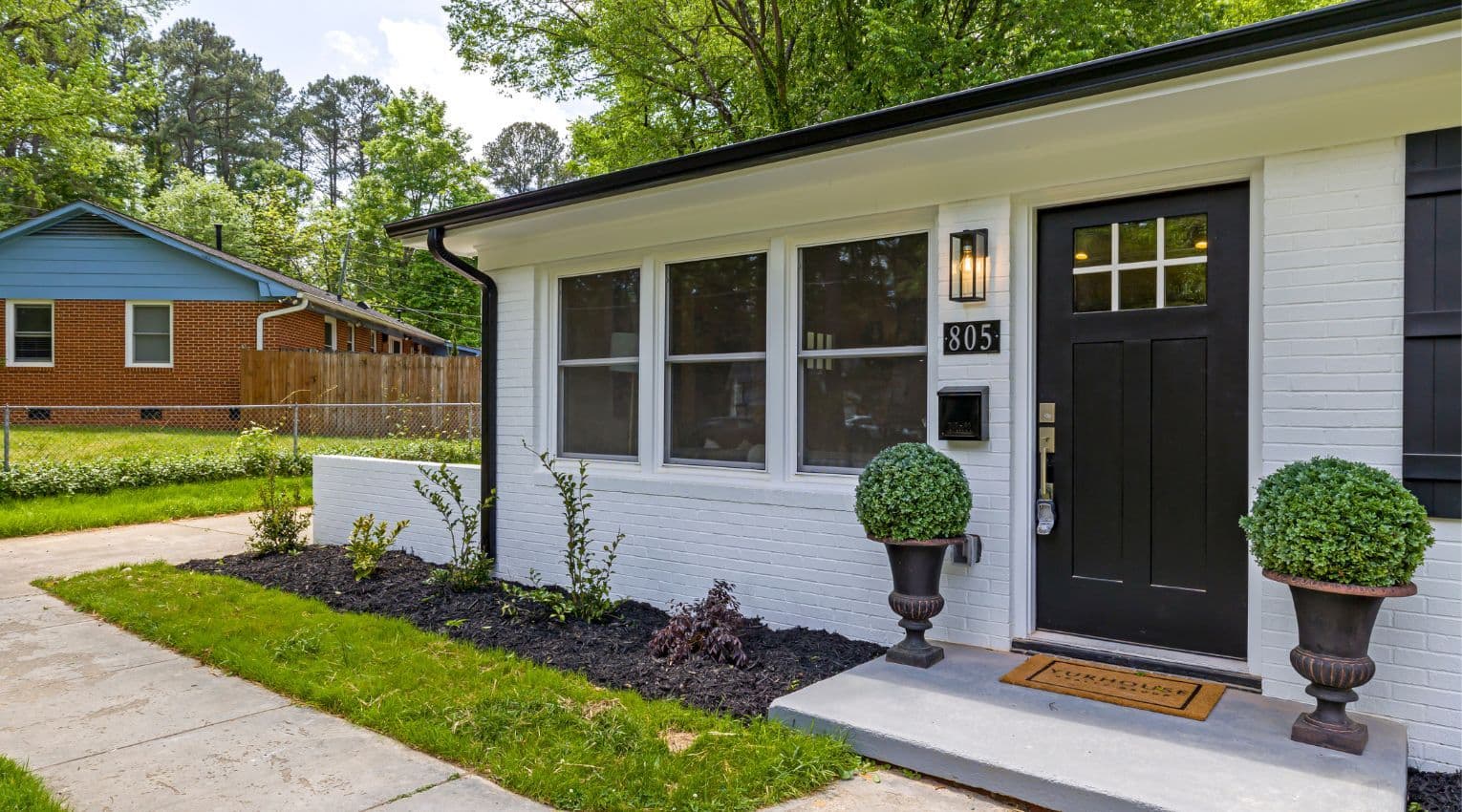Should You Use Your Home Equity to Buy a Second Home?

A sweet little seaside cottage just went on the market and you’re now daydreaming of a weekend home. You found a fixer-upper with great potential—you could buy it and flip it. Or you’d like a new income stream as a rental property owner, and a perfect bungalow down the street was recently listed.
In any of these scenarios, since you’re not planning to leave your current home, the proceeds from its sale aren’t an option for a down payment—but that may not necessarily be a deterrent. In many cases, taking on a second property can still align with both your personal and financial goals.
To make purchasing your second home a reality, it all depends on how you finance it. And in these types of cases, many homeowners consider using their current home’s equity to buy a second property. The market is certainly favorable: In 2017, according to CNBC, homeowners with a mortgage (representing approximately 63% of all properties) saw their home equity go up by 12% at an average of $15,000 per homeowner and more than $900 billion collectively. That extra value could be tapped to go toward another down payment.
Should you use your home equity to buy a second home? Here are a few things to consider.
How Much of Your Home Equity Would You Need to Tap?
Regardless of whether you own your home outright or currently have a mortgage, you’ll want to figure out the exact amount you’ll need to take on a second property. Many homeowners will seek to borrow only enough funds to cover the down payment for the second home. But if you’re considering a fixer-upper, it may make sense to take out an amount sufficient to cover not only the down payment but also anticipated repairs and renovations.
What’s Your Risk Tolerance?
Knowing how much risk you’re comfortable taking on is key when using your current home equity to buy a second home. If your second home will be an income property (either short- or long-term rentals), do you have enough cash on hand to cover expenses during lean times of year or periods when the property is vacant? If something breaks or unforeseen damage occurs to either your primary residence or second property, do you have enough money to cover these unexpected repairs? Finally, if a financial hardship were to strike (e.g., a medical emergency or job loss), could you potentially be on the hook for foreclosure on either or both of your properties?
What Will Your Debt-to-Income Ratio Be?
Again, knowledge is power. Consult a mortgage calculator and compare your home equity lending options to know exactly what your monthly payments will be once you’ve taken on a second home. Read all fine print thoroughly and consult with your potential lenders to ensure you’re getting the most advantageous financing plan for your goals (and no hidden surprises, like fees, down the line). In addition to your monthly payments, factor in any tax implications (both obligations and benefits) that may result from purchasing a second home. If you’re not sure how your taxes will be impacted, speak to your accountant or other trusted tax professional.
Ultimately, your current finances and the specifics of your potential second property will play an equal part in determining whether becoming a homeowner twice over is feasible (and worth your while). By making clear-eyed calculations and having honest conversations with your potential lending partners, you can decide whether it makes good financial sense to take on another property.
Ways to Use Your Equity to Fund a Second Property
Home Equity Loan
A home equity loan gives you a lump sum of cash that you can use for a down payment on another property, and the fixed interest rate means you’ll pay the same amount every month.
Cash-out Refinance
With a cash-out refinance, you take out another mortgage on top of your current one, and can often lock in a lower interest rate by doing so. However, since it is a brand new mortgage, a refinance comes with fees and closing costs — and may extend your payoff timeline.
Home Equity Line of Credit (HELOC)
A home equity line of credit lets you pull funds as needed, so it can be more flexible than other options. But with that flexibility comes unpredictability as well, since the variable interest rate can change every month.
Home Equity Investment
Finally, a home equity investment allows you to tap into your equity in the form of a lump sum of cash in exchange for a percentage of your home’s future value.
Frequently Asked Questions About Using Your Equity to Buy a Second Home
Is it smart to use a HELOC for investment property?
While the best financing option depends on your own situation and goals, a home equity line of credit can provide flexibility in terms of both the amount of funding you can access and the frequency with which you can access it. However, it might not be an ideal fit if you’re looking for predictable monthly payments, as the interest rates are variable.
How do you use your equity on a paid off home to buy a rental property?
There are more than a few different ways to tap into your equity to purchase a rental property, including a home equity loan, home equity line of credit, cash-out refinance, or home equity investment. All of the options have pros and cons, so it’s a good idea to weigh your options.
Can I use the equity in my house as collateral for a loan?
Yes — with a home equity loan you’re technically using your home as collateral, as the financing is being secured with its value.
Can you use money from a home equity loan for anything?
Typically, yes. You receive a percentage of your home equity in the form of a lump sum, so it can be helpful if you’re hoping to use the money for a down payment on a second property.
See if you prequalify for a Hometap investment in less than 30 seconds.
You should know
We do our best to make sure that the information in this post is as accurate as possible as of the date it is published, but things change quickly sometimes. Hometap does not endorse or monitor any linked websites. Individual situations differ, so consult your own finance, tax or legal professional to determine what makes sense for you.



